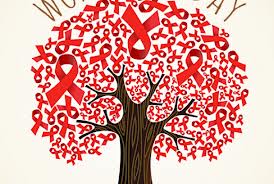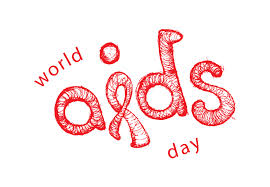The International Federation of LGBTI Youth organisations, IGLYO, shares insights on why it matters.
Original article here
Brussels, December 1st, 2014 – On occasion of World AIDS Day, IGLYO, the International LGBTQ Youth & Student Organisation, call on the European Union, governments, NGOs, health services providers, and activists, to work together to ensure equal access to appropriate healthcare and uncensored information on HIV prevention to youth across Europe.
UNAIDS highlight twelve populations [1] which are left behind, people who are more at risk, more vulnerable and more affected by HIV and AIDS than others. Over the last decade young men who have sex with men have been particularly affected by HIV infections, including those previously at lower risk, who are living in rural areas and smaller cities.[2] Also, transgender women are 49 times more likely to acquire HIV than all adults of reproductive age. [3] Moreover WHO reports that there are “dramatic differences in health that are closely linked with degrees of social disadvantage”. [4]
IGLYO believes that everyone regardless of sexual orientation, gender identity or expression and age has the right to inclusive, accessible and appropriate healthcare, and it is increasingly important to ensure that the inequities which arise out of social circumstances are reduced as much as possible in order to Close the Gap [5] in this area. Closing the gap means empowering and enabling all people, everywhere, to access the services they need.
The internet is a valuable resource in the provision of correct information about sensitive issues, including about HIV prevention, to youth across Europe. The information provided however has to be tailored to the needs of LGBTQ youth, by being anti-stigmatizing and aware of the different situations faced by this group. Mina Tolu, IGLYO board member, added that “access to this information online is most crucial in those countries which have state-sponsored homophobia and transphobia in the form of approved homophobic legislation, for it means that LGBTQ youth might only find positive, up to date and appropriate sexual health information online.”
Despite this it is important that online-communication is not the only approach used to address the needs of men who have sex with men and transgender women, but that sexual education in schools is improved. Eirik Rise, IGLYO Board member emphasized that “All states have the responsibility to provide young people with comprehensive sexual education so that they have necessary information to make free, responsible and informed choices in respect to their sexual health and wellbeing.”
Finally NGOs who actively work in this area, should be continually supported to help these organisations reach out to marginalized groups, men who have sex with men and transgender women, to help fight stigma and discrimination towards LGBTQ HIV-positive people, and to build norm critical sex education programs.
By closing the access gap, all people can be included as part of the solution.
Ends
Contact
IGLYO, International LGBTQ Youth & Student Organisation| Mina Tolu |mina@iglyo.com | www.iglyo.com | www.twitter.com/iglyo | +356 99801261 |
More info:
[1] http://www.unaids.org/en/WAD2014infographics
[2] http://www.unaids.org/sites/default/files/documents/20140716_joint-declaration_youthHIVandLGBTQIrightsEur_en.pdf
[3] http://www.unaids.org/en/WAD2014factsheet
[4] http://www.who.int/social_determinants/thecommission/finalreport/closethegap_how/en/
[5] http://www.unaids.org/en/WAD2014closethegap


